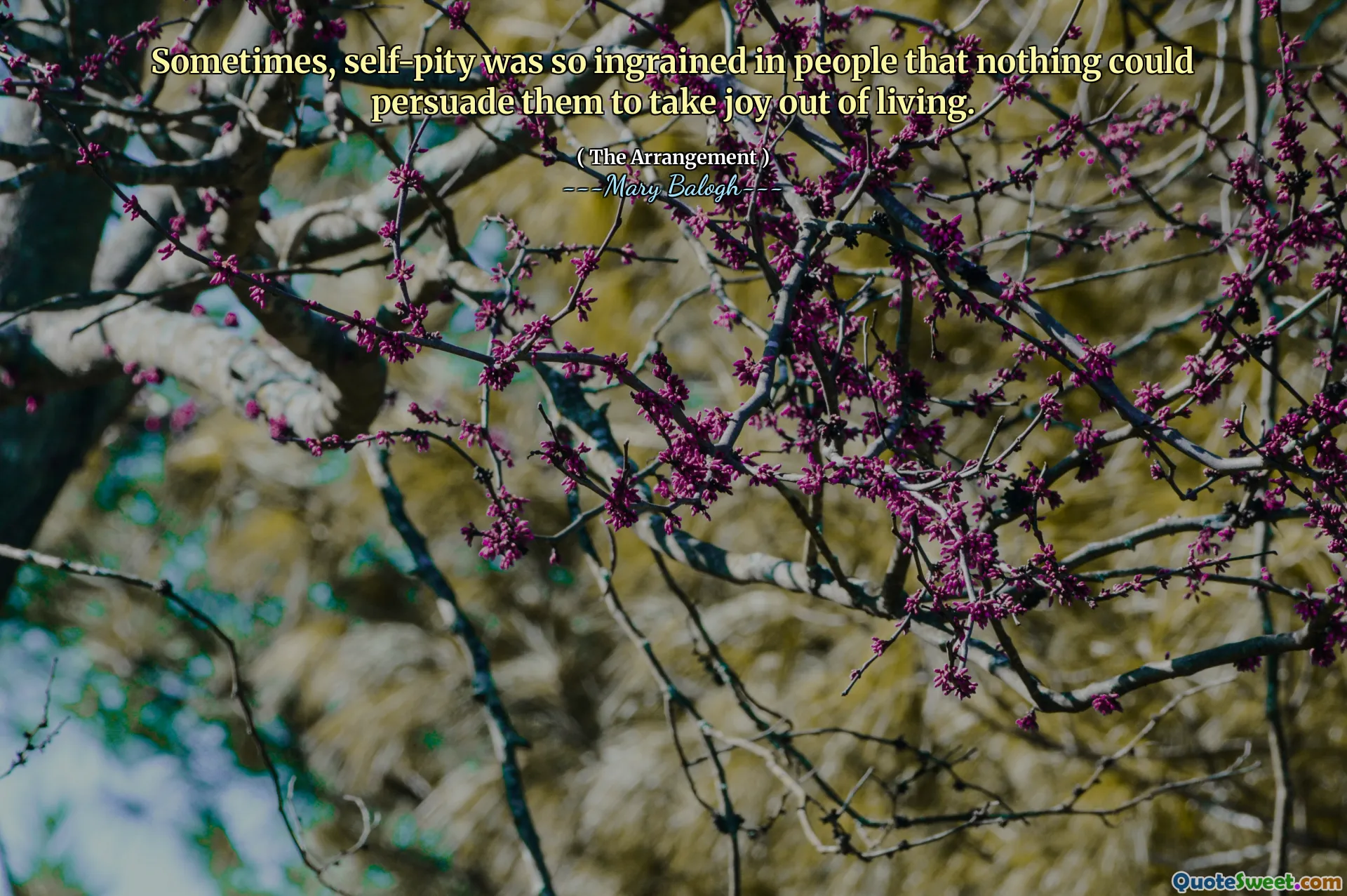
Sometimes, self-pity was so ingrained in people that nothing could persuade them to take joy out of living.
This quote sheds light on the pervasive nature of self-pity and its impact on an individual's outlook on life. When self-pity becomes deeply ingrained, it acts like a mental barrier that shields a person from experiencing happiness and fulfillment. It suggests that such a mindset is not just a fleeting emotion but a deeply rooted psychological state that influences how people perceive their circumstances and interact with the world around them.
The phrase implies that in cases where self-pity is so entrenched, external efforts—be it encouragement, support from others, or life changes—may seem ineffective in galvanizing joy or optimism. It raises an important question about the importance of self-awareness and the need for inner work to overcome such entrenched negative perspectives, which often lead to a cycle of despair or resignation.
Understanding this dynamic is crucial because it highlights the importance of resilience and mental health. While everyone faces difficulties, the capacity to navigate through them without succumbing to despair is vital for mental well-being. It also points to the importance of empathy; recognizing when someone is caught in the persistent trap of self-pity can inspire more compassionate support efforts.
Reflecting on this quote encourages us to consider the ways in which the mind can become habitualized to negativity and the importance of actively cultivating gratitude and hope to break free from these mental chains. It underscores that joy is not always simply available—it often requires an effort to see beyond our own suffering and to embrace the possibility of happiness, even when the internal landscape feels bleak.






